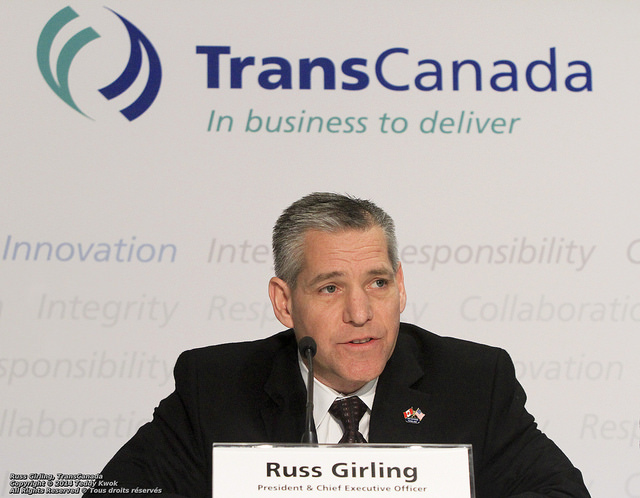Like this article? rabble is reader-supported journalism. Chip in to keep stories like these coming.
A number of Canadian companies — including TransCanada, BMO Financial, Cenovus, Resolute Forest Products and Suncor — are helping to finance a legal action to block U.S. President Barack Obama’s Clean Power Plan, according to a report by Vancouver-based Shareholder Association for Research and Education (SHARE).
The legal action against the U.S. government is being led by the U.S. Chamber of Commerce.
The National Observer reports:
“In 2009, Apple, and some other large companies pulled out of the U.S. Chamber, expressing frustration with the lobby group’s efforts to block action to tackle greenhouse gas pollution. But the [SHARE] report identified more than a dozen Canadian companies that are still part of the trade associations supporting legal action launched by the U.S. Chamber against the U.S. Environmental Protection Agency’s plan to crack down on greenhouse gas emissions from power plants.”
That article also notes:
“TransCanada’s executive vice president and general counsel, Kristine Delkus, was on the U.S. Chamber’s litigation centre board. …TransCanada said it supports the legal challenge of Obama’s clean power plan ‘on the basis that it exceeded the EPA’s legal authority under the Clean Air Act.’ ‘It is focused on the scope of the agency’s power, not with respect to the underlying policy objectives,’ said TransCanada spokesman Mark Cooper.”
In making that argument, TransCanada appears to be siding with the position taken by former U.S. president George Bush and against a ruling by the U.S. Supreme Court. In April 2007, the New York Times reported, “The Supreme Court [has ruled] that the Environmental Protection Agency has the authority to regulate heat-trapping gases in automobile emissions. …The court also decided a second Clean Air Act case, adopting a broad reading of the environmental agency’s authority over factories and power plants that add capacity or make renovations that increase emissions of air pollutants.”
That article highlights:
“The 5-to-4 decision was a strong rebuke to the Bush administration, which has maintained that it does not have the right to regulate carbon dioxide and other heat-trapping gases under the Clean Air Act, and that even if it did, it would not use the authority.”
Furthermore, the legal action that TransCanada and other Canadian corporations are backing challenges weak climate legislation.
While the White House says, “The Clean Power Plan sets achievable standards to reduce carbon dioxide emissions by 32 percent from 2005 levels by 2030,” Greenpeace USA has commented, “On its own, the Clean Power Plan is depressingly insufficient and unambitious. And in the light of the Obama administration’s disastrous desire to expand extraction and export of federal coal, oil and gas, it looks even worse. …2005 is the most convenient year to choose [as a baseline] if you want to look good on climate policy since emissions may have never been higher.”
TransCanada is also using the North American Free Trade Agreement to launch a $15-billion Chapter 11 investor-state challenge against the U.S. government for rejecting the 830,000-barrel per day Keystone XL tar sands pipeline. The company says the denial of its proposed pipeline was “arbitrary and unjustified.”
TransCanada is also the company behind the proposed 1.1-million barrel per day Energy East pipeline.
Photo: Teddy Kwok/flickr
Like this article? rabble is reader-supported journalism. Chip in to keep stories like these coming.



